AI shouldn’t be left in the hands of programmers – Mattermost Live Interview with Ville Valtonen
AI shouldn’t be left in the hands of programmers – Mattermost Live Interview with Ville Valtonen
17.05.19

Till Rückwart
During the EMOOCs 2019 in Naples Oliver Janoschka (Hochschulforum Digitalisierung) will chair the session “Policy Track – National Digital Initiatives”. Ville Valtonen, Chief Marketing Executive of Reaktor, is one of the speakers. Reaktor developed the Elements of AI course in collaboration with University of Helsinki. Elements of AI is a MOOC designed to teach the basics of AI to everyone. Implementing the 1% Challenge they set a goal to educate 1% of the worlds population and demystify the construct of artificial intelligence. I met Ville on our Community Platform Mattermost for an experiment. We had a live chat interview, with members of our network attending and participating. In the following you can read our conversation.
![Does the Empire teach AI at recruits school? Photo: [https://unsplash.com/photos/mvo-xJE1oFg Daniel Cheung] Starwars - Family](/sites/default/files/images/blog/daniel-cheung-554585-unsplash.jpg)
Till
Hello, I’m welcoming the people curious enough to skip their lunch break and be part of our first live interview
And of course, Hi Ville. Thank you for your time
Ville
Hello!
Till
Oliver told me that you are Chief Marketing Executive of Reaktor, but when I asked Google for some Information the result was this.
Are you a person of various profession?
Ville
That’s a different person, my name is not that unique
he’s a famous professor, but we are not related
Till
Maybe you can give us a little introduction in what you are doing?
Ville
My background is in IT, I started my career in programing and also joined Reaktor as a programmer.. then maybe 8 years ago I switched into marketing and communications
But I guess I’m here more in the role of a co-founder of Elements of AI, I’ve been running the project from our (Reaktor’s) side
Till
That’s right!
Talking about AI then. You have developed the 1% challenge. Is AI a challenge?
Ville
When we were nearing the launch of the course, we needed to have some kind of goal to be put on the press releases. That’s how we came up with the 1% of Finland’s population (~55 000 people)
we thought we would need till the end of the year (2018) to get to that goal, but ended getting there in 4 months
And why to do it in the first place, we think that AI is far too important to be left in the hands of programmers. We want to enable everybody to be able to have an intelligent discussion around AI and see the possibilities instead of fears
Till
And also, as you achieved to have 1% of the finnish population attending the course, you started to provoke sweden, to do so as well. Is the 1% challenge the Ice Bucket Challenge for educational reason?
Ville
I surely hope so! It is quite early to compare it to the ice bucket challenge, but it would be an honor to be as widespread as that
I think the most important thing what we did was to approach the course from a new perspective. We knew we have to fight for users who are more willing to watch Netflix than to educate themselves
Jan
Hello everybody,
and first thanks for this cool chat opportunity!
So where are the most participants from? Online you say like 110 countries or so

Ville
@Jan Baumann most of the participants are still from finland – maybe 40-45% but we have had visits to the website from almost every country on the planet – except north korea
Today we just launched the swedish site in collaboration with the university of linköping and AI innovation of sweden
Till
In your Video about Elements of AI, you are advertising with people who are – let’s say – not in a typical education cycle anymore. Everyday people. Is your user-base that widespread?
Ville
Yes it is .. we aimed to course originally for english speaking finns around high school age .. and also did want to create the course equally for women, who tradionally are unrepresented in IT
Now over 40% of the participants are women and over 25% are over 45years old
we even have families where the course is being taken in three generations
Till
The Elements of AI course was developed with University of Helsinki. Now you launched the swedish version – congrats btw. What expertise does collaborating with higher education instituions bringt to your work? Did you learn something that might be adoptable for future formats?
Ville
This is the first university collaboration of this magnitude we have ever done but I think we had luck of getting such a good team from the university of helsinki’s side
They were really willing to listen, learn and co-create, instead of heavily standing behind their methods of teaching
So I think the biggest lesson in this – and in any project for that matter – is trust. If you don’t have it, the project does not succeess as well as it could
Till
Would you say, there are certain needs that have to be fulfilled by a participating institution?
Jan
pretty cool! Are there plans for more collaborations within Europe? From my students perspective – I would like my university to participate too. How to convince universities?

Ville
@Till Rückwart I think commitment is key .. at first we did not have it either, first Teemu (the professor) was the real driving force behind the collaboration and did not have just positive support from the university’s side. But as the course became more succesfull, I think it has been harder and harder to disagree
@Jan Baumann we are really happy to collaborate with any university, who has the means and willingness to do so!
At least here in Finland the university is used to doing most of its work alone and not trusting any outside partners. so this collaboration is anything but normal
at least in the university of helsinki context.
Till
You also said, that there are three generations in families doing the course. Might that be, because of your communication strategy in having companies pledging to use the course? I think more than 250 did so just in Finland.
Annabell
What means would there exactly be? The course is hosted in finland, right? So what do international partners have to contribute besides the translation?
Ville
@Till Rückwart I think that was one key part of the success that we got so many companies to join and to educate their staff in AI – that’s how the word spread really far
@Annabell Bils Are you referring to partnering with Elements of AI? We are actively looking for partners all over the world who are willing to help us spread the course to their countries. We are looking one funding partner and one academic partner in every country. The funding partner – well – funds the expasions and in return get’s the brand visibility and associated goodwill. The academic partner helps with the translation, student support and of course being the public face of the course in the respective country In the university context it would mean to help with translation, student support and of course being the public face of the course in the respective country. We are actually quite far in negotiations with german parties
But I was also referring to any other collaboration. Reaktor is a consulting company, so we are extremely happy to help with any digitalisation project or doing the “Elements of AI treatment” to any course
Annabell
Yes, that’s what I was referring to. Sounds interesting to me.
Till
Sounds legit.
I was just calculating a litte bit.
1% of the global population are almost the german population
You tend to have that many people at least signed up for the course by 2020

Ville
It’s quite a big number in total, but most big numbers can be broken into smaller numbers
Till
Can you explain that?
Ville
It’s good to have ambitious goals – even if you don’t make it till the very end, it ensures that you are staying on a really ambitious track
and if we can get 1% of every country educated and spread the course to every country, we suddenly have 1% of the world’s population
Till
So you are running a different programm as – for example – Coursera. I was just thinking about that, because Coursera is with about 35 million users the biggest MOOC platform at this point (I guess). You tend to double that in 1,5 years
Ville
I think MOOC’s and online education are still in the infancy. so far we have mostly seen courses that are just copied to the Internet. We begin to see real growth when we start to changing the ways of teaching to the new medium
And I am not saying, that we are experts on this – this is the first course we have ever done
Till
And you did it in collaboration with a higher education instituions as consulting experts. Would you say institutions should be more willing to open to the market?
Ville
it really depends what they are aiming at of course I am in no way an expert on higher education. But if they want to reach people on the Internet, it is good to take into account how people behave noweverdays.. many industries have changed with digitalisation and I do not think education is excused. Some things will stay the same and many will change
At least in Finland the law just changed and one of the core tasks of the universities became life long education
that’s going to be quite a challenge
Till
In Germany, we are also having an ongoing discussion whether there should – or should not – be a collective MOOC platform. So maybe, this is my last question. As you say there are governmental changes in Finland right now. What concessions by politics would there be to establish one, also talking about how to communicate it to other people?
Ville
A good question .. we have also having conversations with two of leading universities here (Helsinki & Aalto) about an online platform. I think this should be approached like any good IT-project. Research who the users are, build something that can be tested – start maybe just with a couple of courses and expand from there
At least here the government tends to be a little slow in the movements
But we have some really good examples of public IT projects as well, we digitalised the matriculation exams a couple of years back.
Jan
so far there are two course parts with several chapters, is that right? are there any plans to expand the content in addition to the 1% population range? e.g. like in chapter real world ai – so that you can use examples to show where “artificial intelligence” is already in action and how it helps the population? and one last question from me: did you or how did you integrate students in your planings?
Ville
@Jan Baumann Currently we have one followup course planned – codenamed Building AI. The idea is to give people at least the possibility to read code – maybe also to write some. And to give real life examples of applied AI from around the world
When designing Elements we had beta testers from a couple of finnish high school classes – we fine tuned the content with their comments in mind
Regarding impact, I think it is yet a bit early to say what the real impact on an economy is when teaching the whole population about AI. But at least we can say that many people are more interested in AI in general, they do not fear it and for many this has been the first online course they have ever taken – and likely not the last
![]()
Till
As time is running out. I’d like to thank you a lot for this interview
We are curious to see where the Elements of AI story leads to.
Ville
Thank you for having me! If somebody is interested in partnering with Reaktor, please email us at elementsofai@reaktor.com
Annabell
Thanks!
Jan
Thank you!
Related articles
Inklusive Kommunikation: Wie das Online-Tool Sprachkompass unterstützt
Der Sprachkompass ist ein Online-Tool, das von der Zentralen Anlaufstelle Barrierefrei (ZAB) der Universität Bielefeld entwickelt wurde. Jeder kann es nutzen, um selbst geschriebene Texte auf diskriminierende Sprache zu überprüfen. Erkennt das Tool diskriminierende Sprache, schlägt es Alternativen vor und erklärt auch, warum die entsprechende Formulierung als problematisch eingestuft wird. So verbessert der Sprachkompass nicht nur die Texte, sondern regt auch zur aktiven Auseinandersetzung mit der Wirkung von Sprache an.
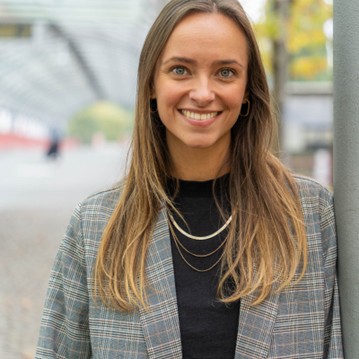 Kim Althoff
27.02.26
Kim Althoff
27.02.26
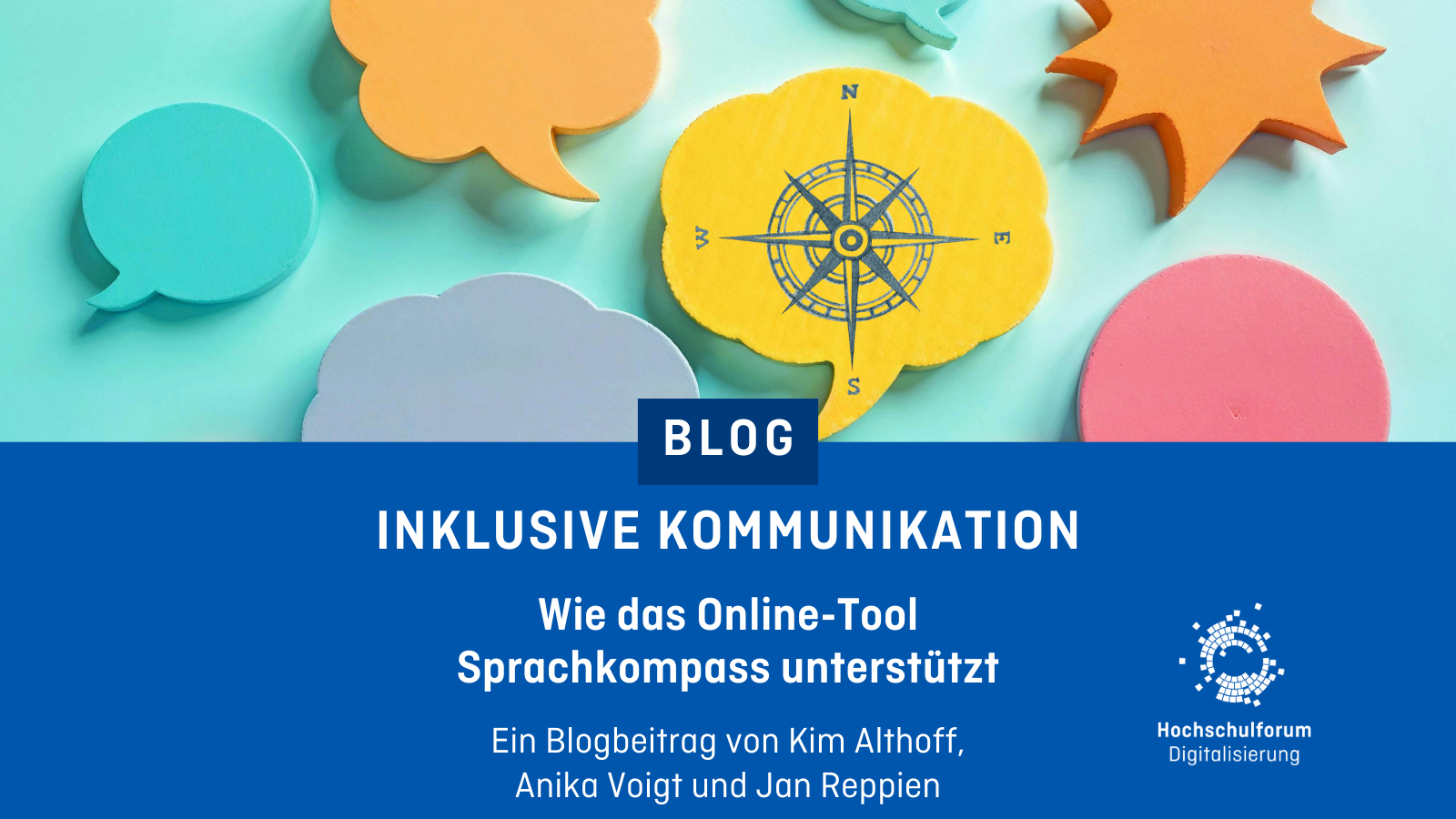
„Mit uns statt über uns“: KI an Hochschulen partizipativ gestalten
Generative KI stellt vieles in der Hochschulbildung auf den Prüfstand. Doch wie erleben Studierende diesen Wandel und welche Rolle spielt ihre Beteiligung dabei? In dieser Auskopplung aus Magazin #6 von „strategie digital” geben Greet Stichel und Katharina Westphal Einblicke aus studentischer Perspektive: Sie sprechen über erste Berührungspunkte mit KI-Tools, über (fehlende) Strategien an Hochschulen und über den Wunsch nach echter Mitgestaltung. Weitere interessante Artikel zum Thema “Generative KI“ finden Sie in der sechsten Ausgabe des HFD-Magazins „strategie digital“!
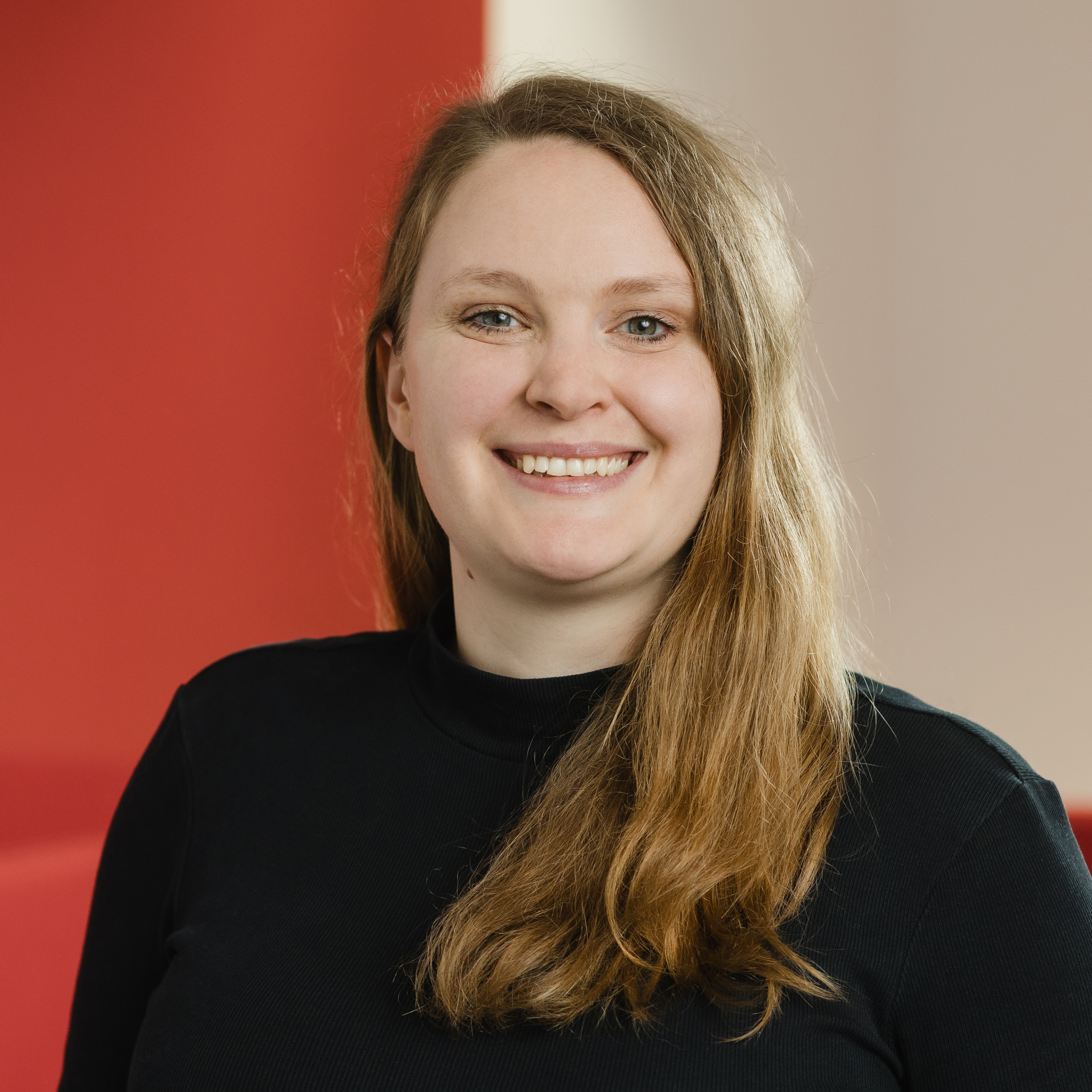 Theresa Sommer
20.02.26
Theresa Sommer
20.02.26
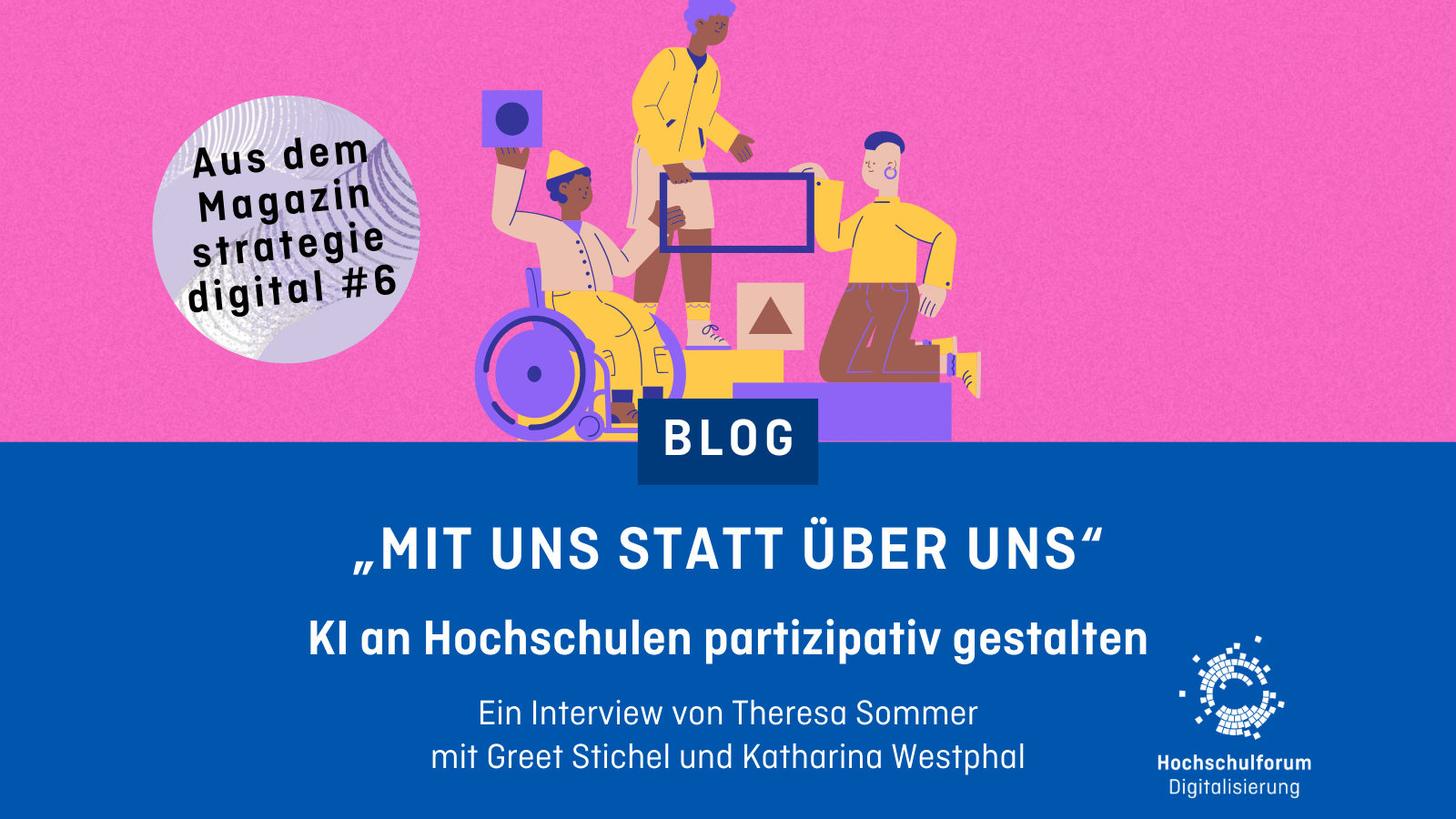
KI prüft KI – und scheitert? Über Bias-Effekte und Verzerrungen in KI‑Detektoren
Die Diskussionen über den Einsatz von KI erweitern sich zunehmend um die Frage, ob sogenannte KI-Detektoren sinnvoll eingesetzt werden können, also Software, die erkennen soll, ob ein Text von einem Menschen verfasst oder KI-generiert wurde. Was auf den ersten Blick nach einer unkomplizierten Lösung zur Aufdeckung von Täuschungsversuchen klingt, erweist sich jedoch als problematisch: Der Einsatz von KI-Detektoren führt zu unzuverlässigen Ergebnissen und ist durch sozial verzerrte Trainingsdaten und Outputs ethisch fragwürdig.
 Inga Gostmann
12.02.26
Inga Gostmann
12.02.26
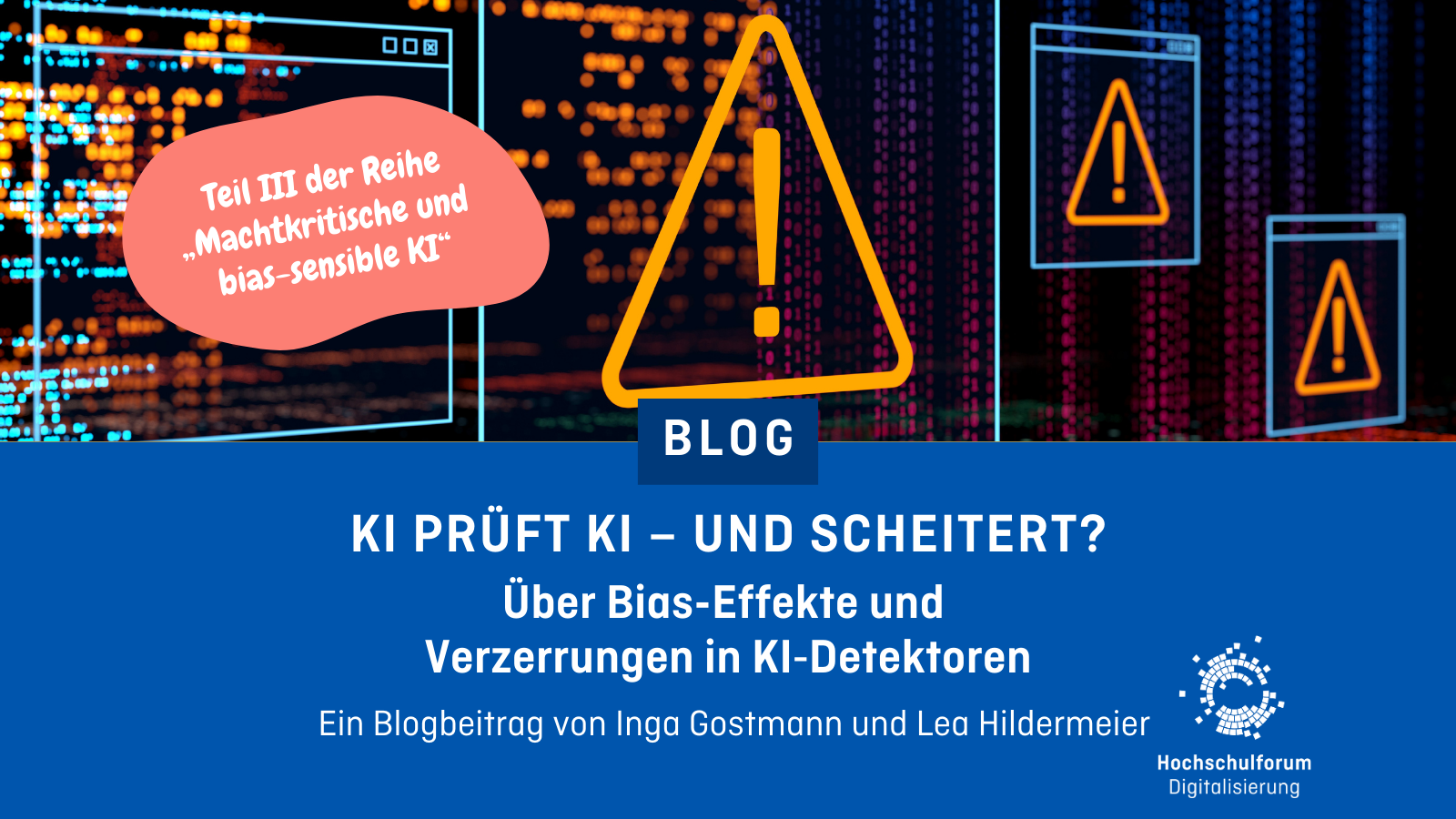
Dieser Text steht unter der Lizenz Creative Commons Namensnennung - Weitergabe unter gleichen Bedingungen 4.0 International - CC BY-SA 4.0. Bitte nennen Sie bei einer möglichen Nachnutzung den angegebenen Autorennamen sowie als Quelle das Hochschulforum Digitalisierung.

Till Rückwart


